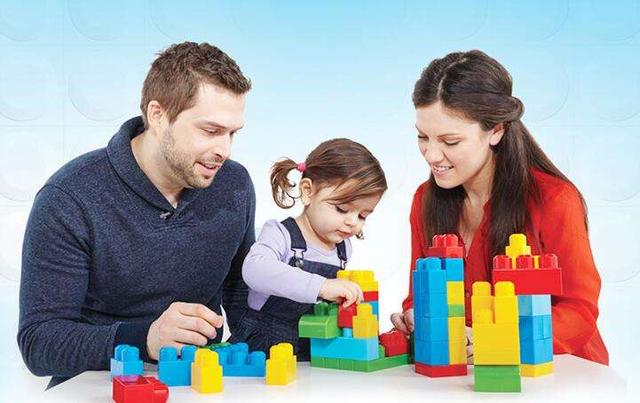Things Parents Should Do When Their Child Is One Year Old
Most children utter their first word around the age of one when the child begins to formally learn to speak.
At this time, if parents pay high attention and give guidance, they can make the child's talent in language higher, and make it easier for the child to speak well when he grows up.
But if parents don't respond to the child's start to speak, it will make the child feel dull and even reluctant to speak.
Temon's mother-in-law is a very diligent old man, but she has a big disadvantage that she doesn't like to talk very much, especially after she went to the city to help them with their granddaughter, she was even more taciturn.
Because the old man has a heavy accent, she rarely speaks, and she is quite at home with her granddaughter.
Temon found out that her daughter is almost two years old and she doesn't like to talk very much. Although her parents or food can pop out of her mouth occasionally, compared to other two-year-old children, her child's words are too few.
Later, when Temon took her daughter to the hospital, she consulted the doctor, and the doctor suggested talking to the child more!

After The Child Is One Year Old, Parents Must Do More Of These Things To Help The Child's Language Development
1. Repeat The Child's Words
For example, when a child calls his father, he can point to his father and tell the child that this is the father. When the child eats, he can tell the child that we are starting to eat. Today’s meal will be scrambled with tomatoes and eggs, and repeat the child’s word in the language as much as possible.
But try to say short sentences as much as possible, because children will not understand sentences that are too long.
2. Describe What Your Baby Cares About
For example, when the baby is stacking blocks, you can tell the baby that the block is put up, the block is put up, or the block is taken down, and the block is taken down.
Describe what the baby is concerned about, and use simple short sentences, so that the baby can understand what is expressed in the mother's sentence, and also let the baby slowly imitate the mother, so as to learn to speak.
3. Encourage Your Child To Do Repetitive Activities
For example, when a child is stacking a carton with a cardboard box, a small cardboard box is folded into a large cardboard box, and after a while, the cardboard box is taken out, and the mother can follow the instructions to put the cardboard box in, put it in, take it out, and take it out.
Let the child understand that this thing is called a cardboard box, this action is called "put in", and this action is called "take out", when the child can clearly understand these things, he will slowly learn to say.
4. Colors Are Best Ignored In Language
For example, when playing with toys for children, there are several cars, and different cars have different colors. It is best not to mention the color of the car when the mother describes these cars.
For example, red, red cars, white cars, will confuse the child, because when the child is more than one year old, he can't distinguish too many colors, and the mother's addition of colors in the description will confuse the child. The child is confused.
5. Books With Some Simple Pictures, Or Cards
For example, on a fruit card, there is an apple written under a fruit, or a plant card, a word corresponding to a plant. The comparison between such a picture and a word will make it easier for children to match the item with this sentence. Contribute to the maturity of children's language skills.

Therefore, after the child utters the first word, we should use the above 5 methods to further strengthen the child's language ability, let the child learn to speak faster and faster, make the child's language ability stronger and stronger, and also tap the child's language talent!
The child's language ability is strong, his thinking and logic ability will be stronger, and his speech ability will also be stronger, which will help the child's future study and work!
American cognitive psychologist Steven Pinker mentioned that children can successfully master a language before the age of 6, and their ability to learn language begins to decline from the age of 6, and this decline continues until the end of adolescence!
Therefore, smart parents must learn to seize the golden period of their children's 0-6 years of learning a language!
It is suggested that parents can buy a book "0-6 years old, seize the critical period of children's language" written by Margaret McLagan, a professor of communication disorders at the University of Canterbury in New Zealand.
According to the characteristics of children's brain development at different ages, how do teach parents how to cultivate children's language ability? How to tap children's language talent?
It will tell parents how children react at different ages, what language characteristics are, and how parents can help their children develop their language talents. Talent gets the most out of it!
Parents learn to use the knowledge inside to nurture their children, and they can nurture an eloquent child. Let parents and children read not blindly, confidently, more scientifically, and more efficiently.
Post a Comment for "Things Parents Should Do When Their Child Is One Year Old"